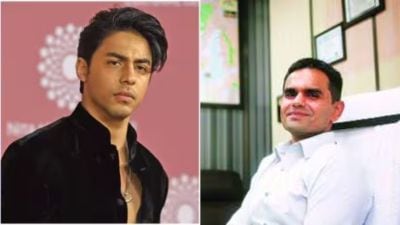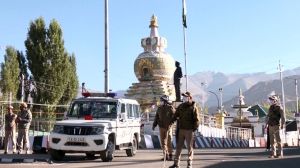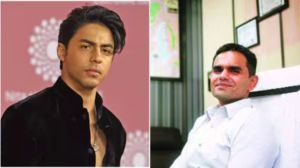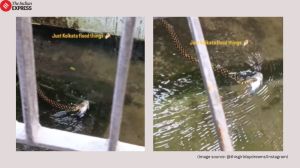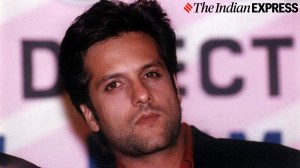Indo-Pak ties: ‘Stove, several frontburners, many meals cooking, including Kashmir’
As the stage is set for another meeting of the leaderships of India and Pakistan, three high-profile former US diplomats with inside access ...

As the stage is set for another meeting of the leaderships of India and Pakistan, three high-profile former US diplomats with inside access into the Bush administration are offering new solutions to regional tensions, especially on Kashmir.
But even as the diplomats, who flew in from Islamabad on the weekend, put forward the idea of a ‘‘linear stove, on which several frontburners are cooking several meals at the same time, including on Kashmir,’’ the Foreign Office refused to react to the contents of the report co-sponsored by two prestigious US thinktanks, the Council for Foreign Relations and the Asia Society.
Still, a measure of the importance of the triumvirate—former ambassador to India Frank Wisner, former ambassador to Pakistan Nicholas Platt and a former US State Department specialist on South Asia Dennis Kux—could be seen in the appointments they got.
Yesterday, it was Principal Secretary Brajesh Mishra, today it was the Centre’s interlocutor on Kashmir N N Vohra, Defence secretary Ajay Prasad and a gathering of the Hurriyat. Tomorrow, the Americans travel to Jammu to meet members of the Mufti Mohammed Sayeed government.
Calling for the US to get more actively involved in managing tension in the region, Platt pointed out that the imagery of the linear stove precluded ‘‘ignoring or putting anything on the backburner.’’ Wisner said the key was to persuade New Delhi and Islamabad to ‘‘simultaneously’’ and ‘‘reciprocally’’ move forward on all key issues, including Kashmir.
The diplomats refrained from taking credit on behalf of the US over the current state of detente between India and Pakistan, complimenting Prime Minister Vajpayee for his renewed attempt at peace. But they also recommended the formation of a special working group that could become the ‘‘focal point’’ of behind-the-scenes ‘‘facilitation’’ between the governments of India and Pakistan, primarily through the good offices of the US embassies in both capitals.
‘‘The timing is right and both leaderships have the political will and the ability to implement a detente,’’ Wisner said, adding, ‘‘moreover, the military is in support of the Pakistani government’s moves.’’
Asked what had changed in Pakistan, Platt said, ‘‘less has changed than what has become possible…there is a real desire for normalisation.’’
Although New Delhi’s refusal to react may be explained by the fact that the report has been written by an NGO outfit, however prestigious, analysts with long experience in the region said parts of the government could not be too happy with some of the report’s conclusions.
Such as, the belief that the unofficial Pakistani position is veering around to accepting something less than a statewide plebiscite in Kashmir, such as one along district lines. That Islamabad could be prepared to agree to an independent status for Kashmiri-speaking areas or ‘‘some special arrangement for the Kashmir valley as long as this no longer remains totally subject to Indian sovereignty.’’
Few Pakistanis, the report goes on to add, are however willing to accept status quo as the basis for settlement. While there is some support for putting Kashmir on the ‘‘backburner,’’ the Pakistan army, ‘‘which significantly determines policy, shows little sign of a significant shift on the issue.’’
On the other hand, the report presses General Musharraf to make good his pledge on permanently ending cross-border infiltration into India, not to allow him to permit the use of Pakistani territory for ‘‘neo-Taliban attacks on Afghanistan,’’ and modify its present negotiating stance, which makes progress on Kashmir a precondition for dealing on other issues with India.
With India, it calls upon the US to press India to do more in addressing the aspirations of Kashmiris and increase the pace of economic development and reduce the level of activity by Indian security forces within the Kashmir valley. New Delhi should also give up resistance to international monitoring of the LoC, the report adds.
Moreover, India and Pakistan should prepare a framework for issues such as nuclear confidence-building measures, deescalation along the LoC and the Siachen glacier, expanded trade relations, easing movement of people and reducing hate propaganda.
The former diplomats also had advice for both governments. ‘‘Loose statements by politicians on the hustings is not a good idea…keeping quiet is a good way of proceeding forward,’’ they said.



- 01
- 02
- 03
- 04
- 05


